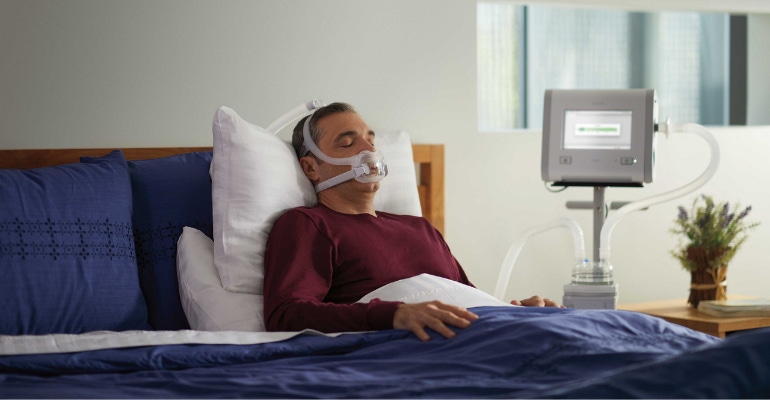Philips' Latest Ventilator Recall
FDA said dust and dirt in the air path can reduce air flow to patients using certain ventilators made by Philips.
August 16, 2023

FDA posted details this week regarding the most recent recall on ventilators made by Philips, prompting widespread media coverage Tuesday. This recall, however, is the same one the agency previously identified as a Class I recall, which MD+DI reported on in June.
The update also coincides with news earlier this week that Exor, a Netherlands holdings company, bought a 15% stake in Philips.
"The path of change taken by Philips in recent years has created a company that combines two areas – healthcare and technology – to which we are committed," Exor CEO John Elkann said. "Our discussions have confirmed the strong and positive alignment between our long-term, supportive approach to our companies and Philips’ ambitious plans under the chairmanship of Feike Sijbesma and the executive team led by Roy Jakobs.”
Philips initiated a recall of its Trilogy Evo, Evo O2, EV300, and Evo Universal ventilators on March 29, and notified hospitals and patients in April, according to the most recent information from FDA.
The company recalled the ventilators after detecting dust and dirt from the environment in the air path of some devices. Extended exposure to environmental contaminants such as dust and dirt can lead to buildup that may block air vents and cause the device to stop delivering the right amount of air pressure, or air volume/flow, the agency noted.
If the ventilator fails to provide the right level of breathing support, patients may not receive enough oxygen (hypoventilation) and may experience a build-up of carbon dioxide or other gas pressure, which can lead to serious injury or death.
By FDA's tally, the company has received 542 reports about this issue, including two reported injuries and one death.
Philips recall: Actions for users to prevent risk to patients
Ventilators impacted by this recall may still be used, however the field safety notice provides guidance to help users prevent risk to patients.
To prevent the accumulation of debris on the machine flow sensor, the company is instructing hospitals and caregivers to use the company's approved particulate filter, which is designed to prevent a significant majority of airborne dust and dirt from entering the device. This filter, which was previously considered optional, is now required.
Healthcare facilities are also instructed to replace the filter between patients, and to use the air-inlet filter.
Users of the recalled ventilators are also urged to set alarms based on ventilation mode to help detect changes in therapy while the device is in use. FDA noted that a specific alarm should sound if therapy is reduced due to filter blockage. If that happens, the user must rinse the air-inlet filter and replace the particulate filter. Healthcare providers and caregivers also are encouraged to use alternative ventilation equipment if the situation cannot be resolved.
About the Author(s)
You May Also Like



.png?width=300&auto=webp&quality=80&disable=upscale)
